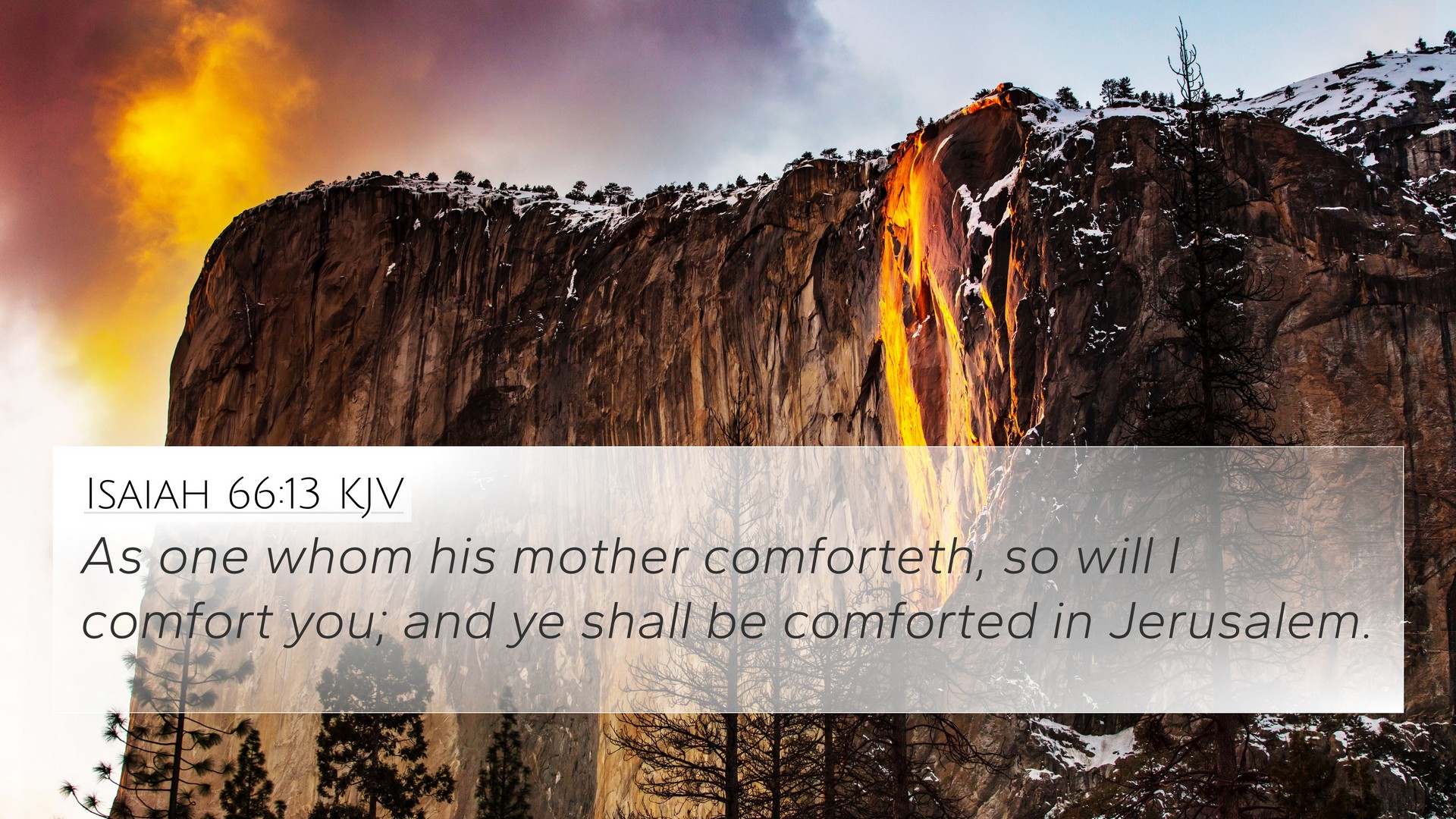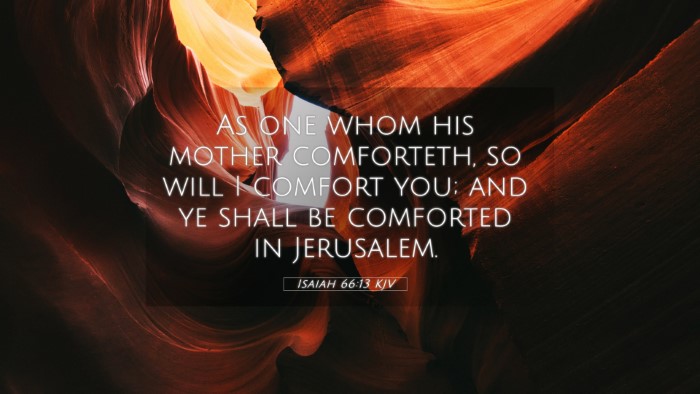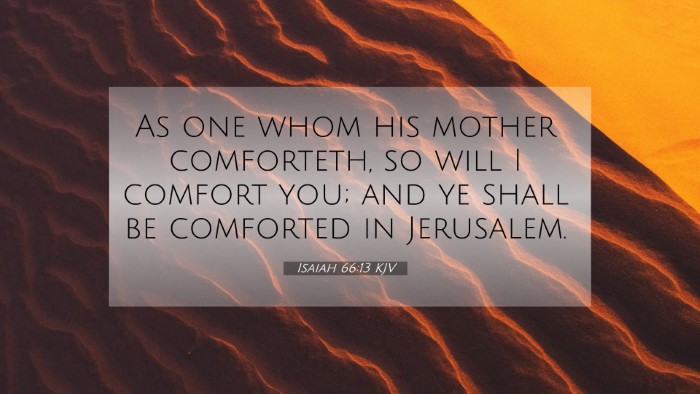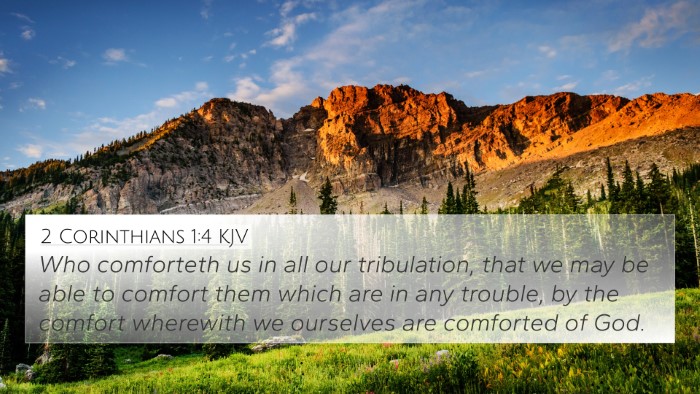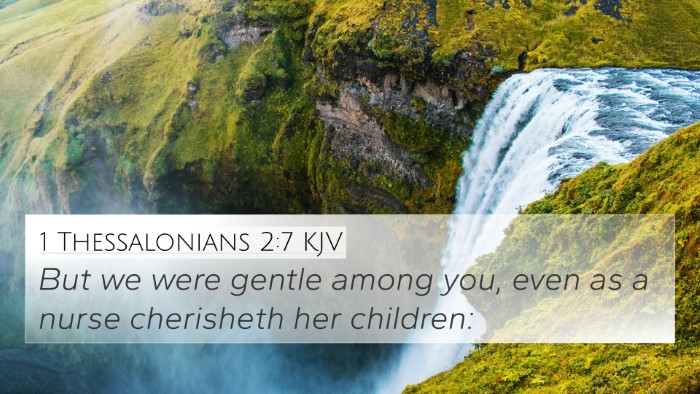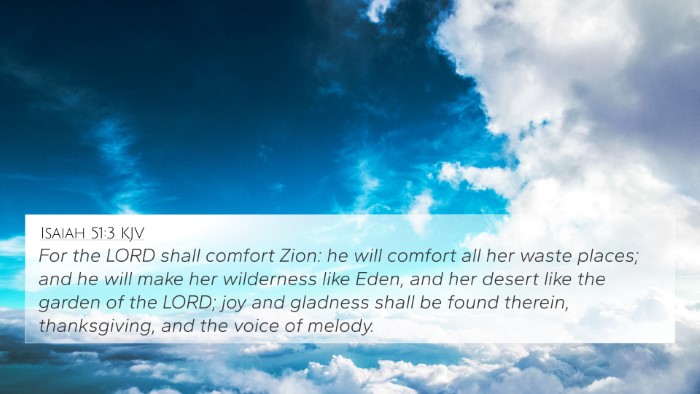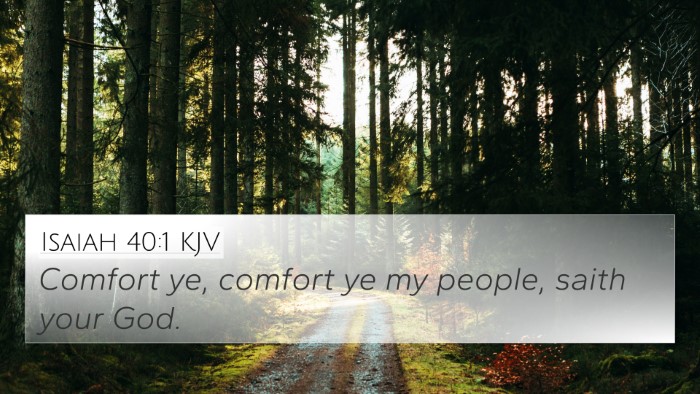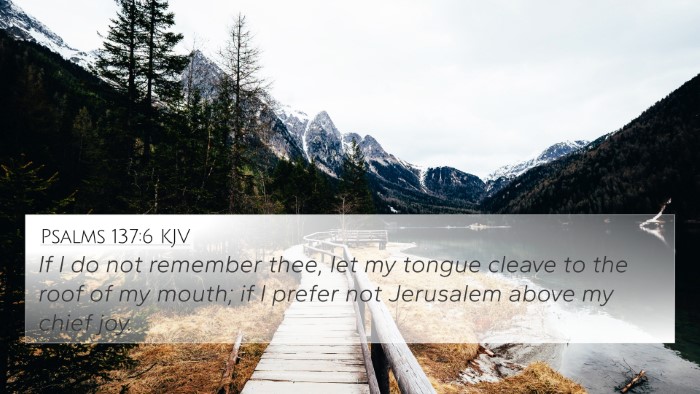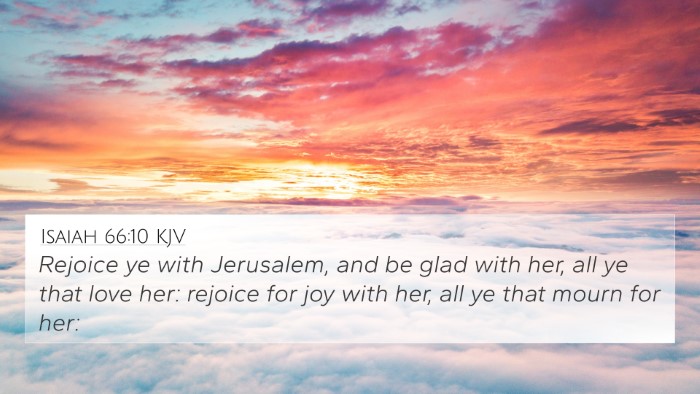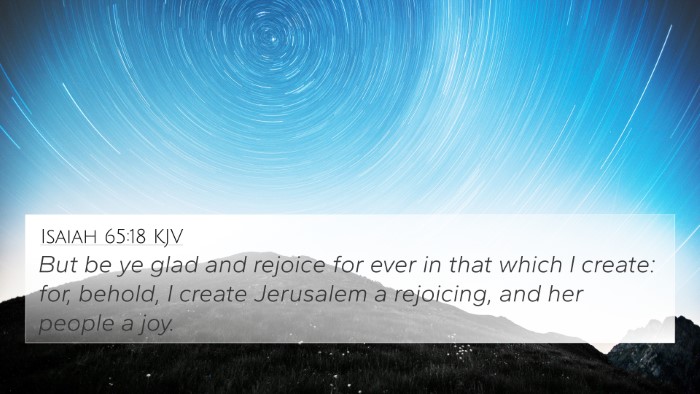Understanding Isaiah 66:13
Isaiah 66:13 states: "As one whom his mother comforts, so will I comfort you; and you shall be comforted in Jerusalem." This verse captures the profound compassion and comfort that God extends to His people, likening His care to that of a mother comforting her child. Below we delve into the insights provided by various public domain commentaries regarding its meaning.
Commentary Insights
-
Matthew Henry:
Henry illustrates how God’s comfort is akin to maternal compassion, suggesting that just as a mother provides solace and nurturing, so does God offer His unerring comfort to His people. He emphasizes that this comfort is not merely physical but extends to emotional and spiritual realms.
-
Albert Barnes:
Barnes notes that this verse serves as a reassurance to the Israelites, particularly after their trials and judgments. He reflects on the historical context, where Jerusalem represents a place of safety and peace, implying that God's comfort is inherent in returning to a state of blessing and protection.
-
Adam Clarke:
Clarke elaborates on the maternal imagery, suggesting that the comparison honors the deepest emotions and protective instincts of a mother. He interprets this verse as an affirmation of God’s relentless love and His readiness to provide healing and reconciliation to His people.
Thematic Connections
This verse connects deeply with various biblical themes such as divine comfort, the nature of God as a protector, and the relationship between God and His people. The use of maternal imagery illustrates the nurturing aspect of God, which is vital for understanding His approach towards those who seek refuge in Him.
Bible Cross-References
Isaiah 66:13 can be linked to several impactful scriptures that enhance its meaning:
- 2 Corinthians 1:3-4: “Blessed be the God and Father of our Lord Jesus Christ, the Father of mercies and God of all comfort, who comforts us in all our affliction...”
- Psalm 94:19: “When the cares of my heart are many, your consolations cheer my soul.”
- Matthew 5:4: “Blessed are those who mourn, for they shall be comforted.”
- Isaiah 40:1: “Comfort, comfort my people, says your God.”
- John 14:16: “And I will ask the Father, and he will give you another Helper, to be with you forever.”
- Revelation 21:4: “He will wipe away every tear from their eyes, and death shall be no more...”
- Psalm 23:4: “Even though I walk through the valley of the shadow of death, I will fear no evil, for you are with me; your rod and your staff, they comfort me.”
- Luke 18:7: “And will not God give justice to his elect, who cry to him day and night? Will he delay long over them?”
- Romans 15:13: “May the God of hope fill you with all joy and peace in believing...”
- Hebrews 13:5: “...for he has said, 'I will never leave you nor forsake you.'”
Inter-Biblical Dialogue
Isaiah 66:13 stands in dialogue with many other biblical texts, creating a tapestry of comfort and hope throughout the scriptures. These connections underscore the unified theme of God's unfailing love and support across both the Old and New Testaments.
Conclusion
The meaning of Isaiah 66:13 extends beyond its immediate textual boundaries. Its maternal imagery reflects God's deep compassion and commitment to comforting His people. When one engages in cross-referencing Biblical texts, the insights garnered from related scriptures create a holistic understanding of God's character as a Comforter, enhancing one's study and spiritual reflection. As believers, we are invited to find solace in God's promises and to understand how scriptural connections between Bible verses play a critical role in portraying His nature.
SEO Keywords Overview
This exploration uses relevant keywords such as Bible verse cross-references, comparative Bible verse analysis, and thematic Bible verse connections to improve accessibility for those searching for biblical interpretations and understanding. For deeper studies, resources such as a Bible concordance or Bible cross-reference guide can be significantly beneficial.
